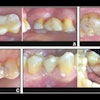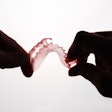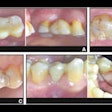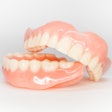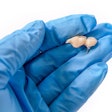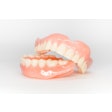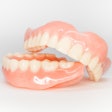
The amount of time that a patient uses the common breast cancer treatment medication tamoxifen may be associated with tooth loss, according to a study recently published in Oral Medicine, Oral Pathology and Oral Surgery.
Additionally, tooth loss was greater in older patients and those who took tamoxifen but did not receive chemotherapy or radiotherapy, the authors wrote.
"The average number of lost teeth is higher in patients who consume tamoxifen and even higher in patients who have been on treatment for more than one year," wrote the authors, led by Jane Janet Julca-Baltazar of Antenor Orrego Private University in Trujillo, Peru (Med Oral Patol Oral Cir Bucal, July 1, 2024, Vol. 29:4, e552-558).
Tamoxifen is an estrogen modulator that is considered a first-line prescription drug for the treatment and prevention of the recurrence of hormone receptor-positive tumors in the breast.
Despite its benefits, the medication has known side effects, including endometrial cancer, sleep disorders, and blood clots. Additionally, tamoxifen can affect general oral health, like causing changes to the bacteria in the oral cavity, which could promote gum disease. However, there is scant published research that treatment with tamoxifen in patients with breast cancer may associated with a greater risk of tooth loss, according to the study.
To determine the potential correlation between tooth loss and tamoxifen consumption in patients with breast cancer, 200 adults between the ages of 20 and 75 who had been diagnosed with breast cancer were included in the study. Of these patients, 100 had been treated with tamoxifen and 100 had not taken the medication.
Compared to women who didn't take tamoxifen, women who consumed the drug for more than one year had greater tooth loss (p = 0.025), the authors wrote. Furthermore, tooth loss was greater in older women compared to young women (p = 0.03). Those who took tamoxifen and received chemotherapy (p = 0.000), radiotherapy (p = 0.005), or both treatments (p = 0.000) had less tooth loss.
A limitation was that the study was cross-sectional, which doesn't allow a causal relationship to be established, they wrote.
Furthermore, oncologists should be aware of the possible association between tamoxifen and tooth loss and integrate dental consultations into clinical treatment planning, the authors wrote.
"(Also,) dentists should be aware of these complications and implement preventive measures for these patients, effectively combining multidisciplinary care," Baltazar and colleagues wrote.



